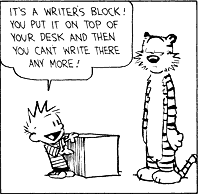I had it in my mind to write a post about opening lines - about how they mean so much, set the tone, can change whether a person reads a story or not. I thought about writing a post about first lines and how they change from draft to draft to final book, losing words, changing angle, sometimes taking on whole new meanings,
And then I thought - no. Not that. What's the best way to see how to do opening lines? Where's the best place to look to see it done right?
Good books.

Any list of good books is subjective and wrong. So, rather than 'good', maybe I should call these 'popular', or 'successful.' They're all award winners - from the UK, the
Carnegie Medal, and from the U.S., the
Newbery Medal, two of the many, many fine awards given out every year for children's books. Why only these two? They're established, have a good history, and I like them. Why only two awards? Because these posts can't go on forever.
Thankfully, good books can.
Read, enjoy, and maybe be intrigued, and then read some of these books. I know I hope to. I want to learn, as well, about the importance and the power of
once upon a time.
The Past Twenty Carnegie Medal Opening Lines
The monster showed up after midnight. As they do.
Patrick Ness, A Monster Calls
"'War,' says Mayor Prentiss, his eyes glinting. 'At last.'"
Patrick Ness, Monsters of Men
There was a hand in the darkness, and it held a knife
Neil Gaiman, The Graveyard Book
They'd stolen a march on the day. The sky was like dark glass, reluctant to let the light through.
Siobhan Dowd, Bog Child
Even the woods are burning.
Philip Reeve, Here Lies Arthur
The view is fine up here. I can look out across the world and see everything.
Meg Rosoff, Just in Case
In the end it was her grandfather, William Hyde, who gave the unborn child her name.
Mal Peet, Tamar
We have just moved house to 7 Comarty Close. The patron saint of moving house is St Anne (1st century).
Frank Cottrell Boyce, Millions
When summer comes to the North Woods, time slows down.
Jennifer Donnelly, A Gathering Light
Dallas leaned far out of the window, his eyes fixed on a bird flying lazily in the distance.
Sharon Creech, Ruby Holler
Rats! They chased the dogs and bit the cats, they --But there was more to it than that
Terry Pratchett, The Amazing Maurice and his Educated Rodents
Sade is slipping her English book into her schoolbag when Mama screams.
Beverley Naidoo, The Other Side of Truth
Not knowing his way around, he set off back the way he had come.
Aidan Chambers, Postcards from No Man's Land
I found him in the garage on a Sunday afternoon.
David Almond, Skellig
It didn't start with the river boy. It started, as so many things started, with Grandpa, and with swimming.
Tim Bowler, River Boy
A boy and a girl were spending the night together in the back sat of a Volvo estate car.
Melvin Burgess, Junk
Lyra and her daemon moved through the darkening Hall, taking care to keep to one side, out of sight of the kitchen.
Philip Pullman, Northern Lights
My footprints track across the faint dew still lying on the grass.
Theresa Breslin, Whispers in the Graveyard
My fascinating life. Yes.
Robert Swindells, Stone Cold
Mr Cartright swung his legs to and fro under the desk, and raised his voice over the waves of bad-tempered muttering.
Anne Fine, Flour Babies
____________
So, take from this what you will - thing you like, things you don't, thinks you wish you could do, and everything else. Happy writing.
Part two - the Newbery Medal and Honour Awards - coming soon.





